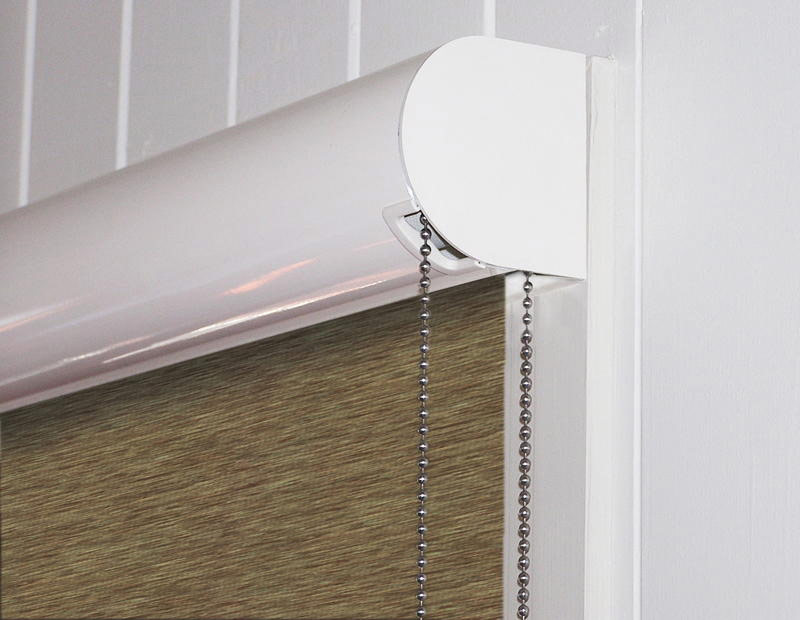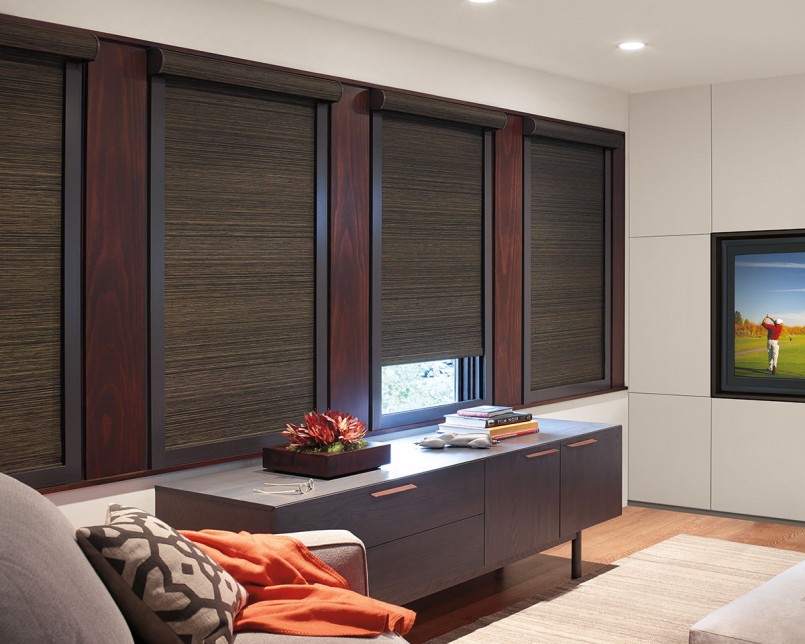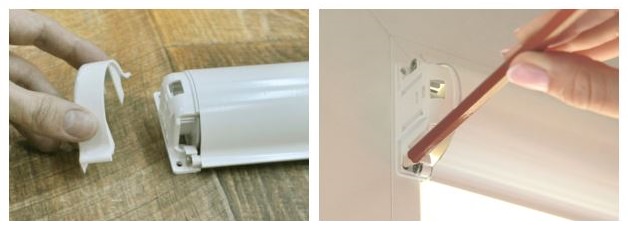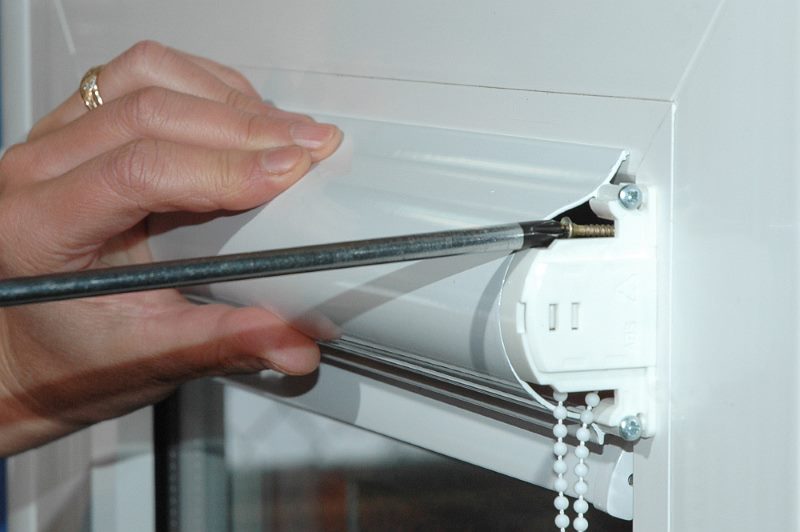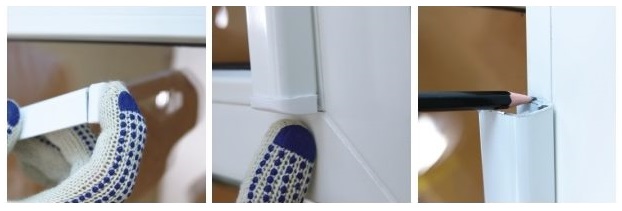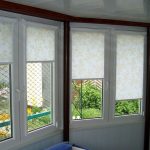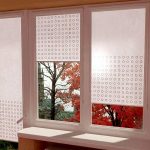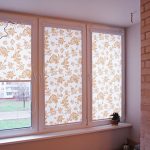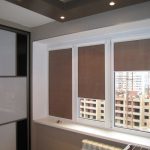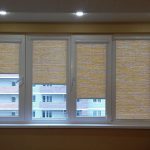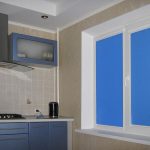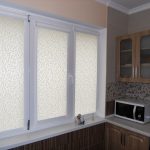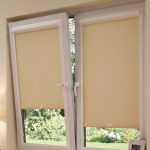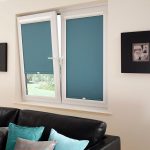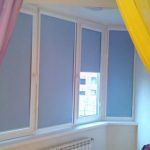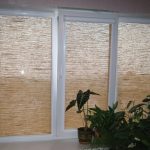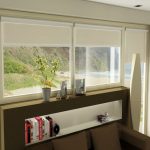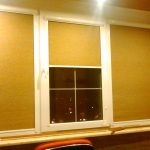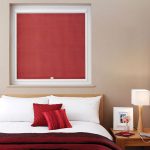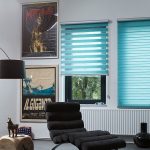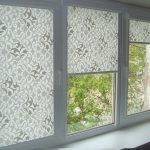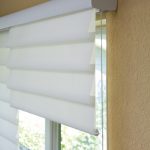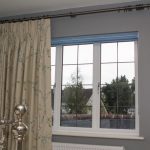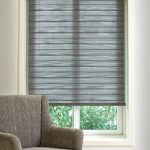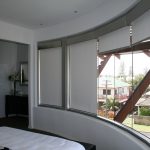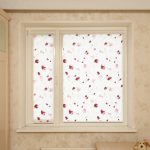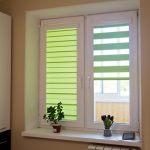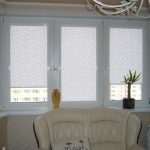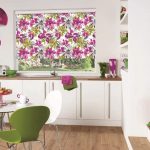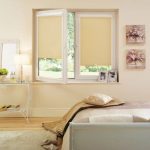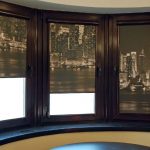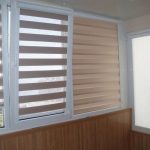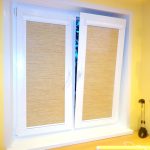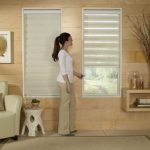Remember the times when newspapers were hung on windows to protect from the sun or glass was covered with foil for the same purpose? Well, now there is an alternative to such methods. This alternative is roller blinds. A practical, neat design, unlike newspapers, does not spoil the appearance of the interior and does not fade. It can be installed above the window opening as a classic decor, inside the opening or on the sash.
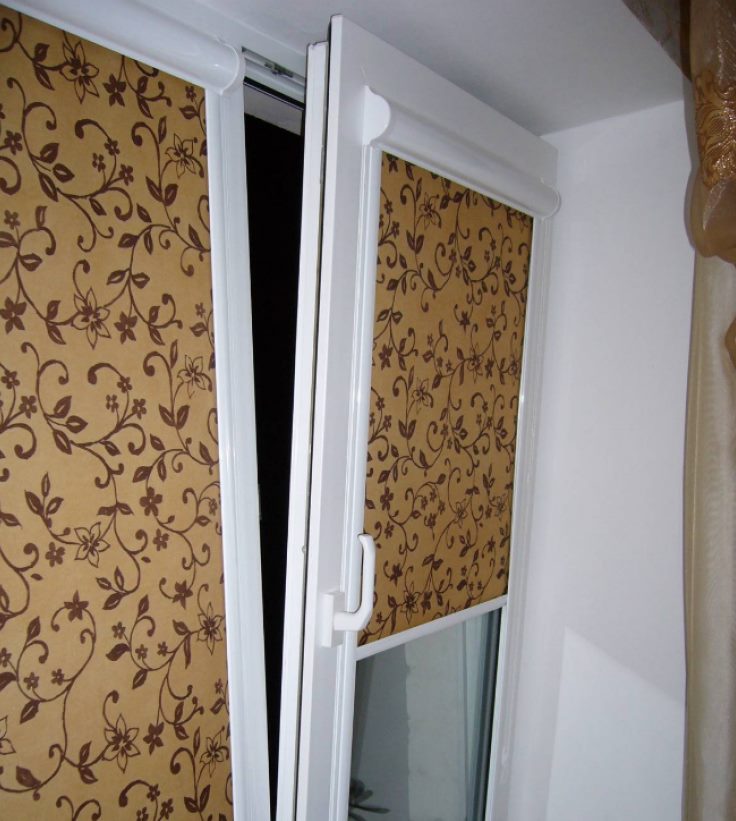
Roller blinds differ in the following parameters:
- Lifting mechanism. There are electromechanical, chain, and spring types.
Curtains on a chain are the most common and affordable. - Light blocking degrees – translucent, transparent, zebra with the ability to regulate the clearance, blackout with a light blocking degree higher than 90%.
Particularly dense blackout fabrics will be appropriate for decorating windows in a home theater - The width of the window opening on which they are installed - standard and luxury, the width of the first is less than 2 meters, the second - up to 4.5 meters.
- The method of fixing and moving the web – open and closed (cassette).
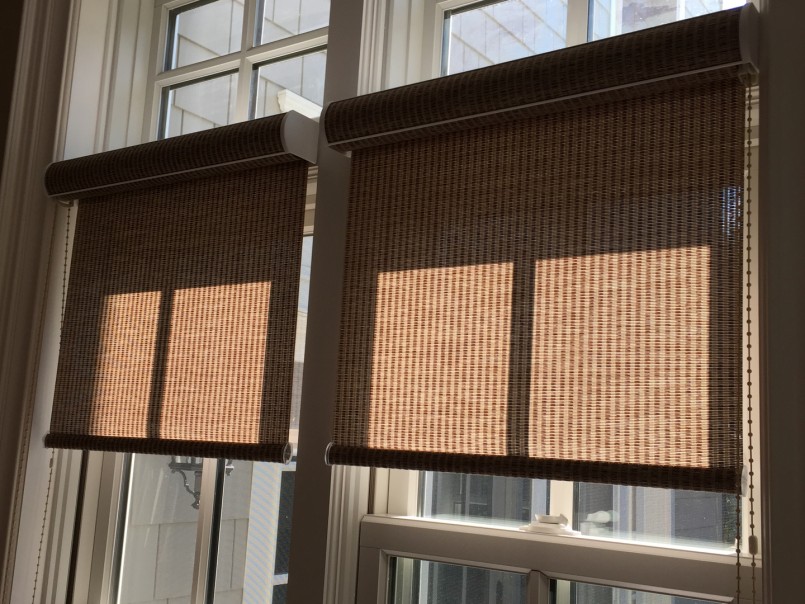
Please note: To avoid confusion, please note that roller blinds and roller shades are the same thing.
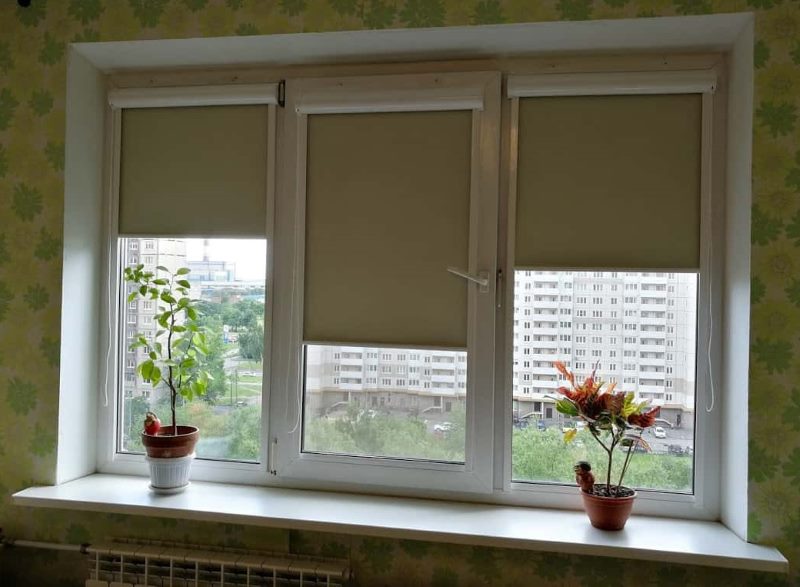
Content
Cassette blinds
The textile rolled into a roll is protected by a plastic cassette. Cassette roller blinds are a structure that consists of a sheet of thick fabric, a shaft on which the fabric is wound, a cassette for protection from dust and a lower weighting bar. Cassettes are used on closed-type structures.
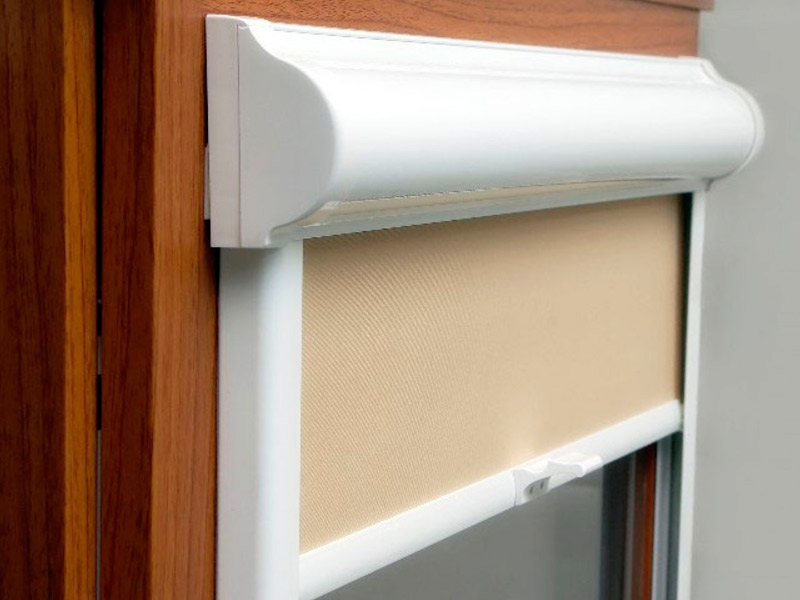
The design of mini-cassette roller blinds practically merges with the window frame. This is achieved due to the fact that mini-cassette blinds are not attached to the wall or window opening, but directly to the frame. In addition, the white box will be completely invisible. The box with the shaft inside is attached to the glass unit, the side guides - to the glazing beads.
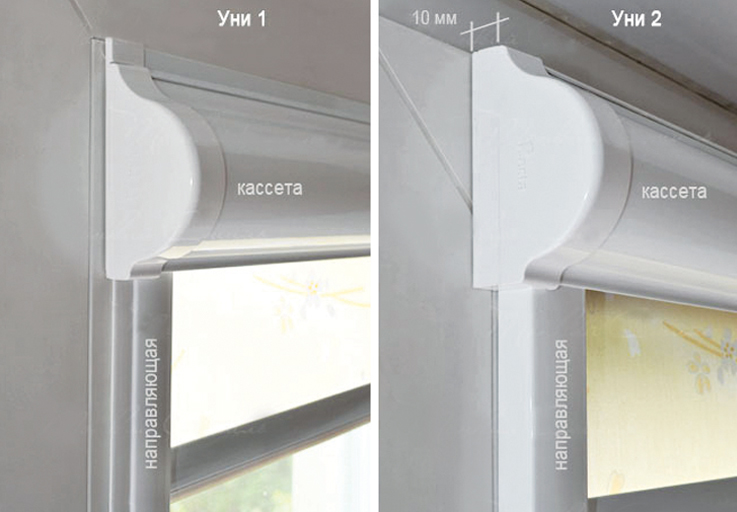
Minicassette has a big advantage: the window sashes can be opened and the room can be ventilated, while the fabric does not deviate from the glass. When using cassette roller blinds, the window sill will remain free, and it will also be possible to use traditional window decor, and minicassette - for additional darkening.
Open and closed type curtains
In the closed type, the canvas is closed on four sides, with a cassette on top, guides on the sides, and a bar at the bottom. Cassette roller blinds belong to the closed type of canvas fixation, when open, the curtain is not fixed on the sides, otherwise the designs are identical.
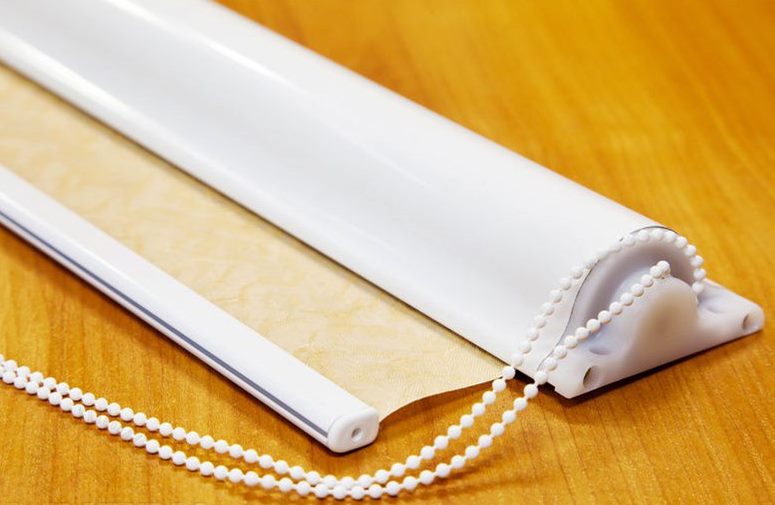
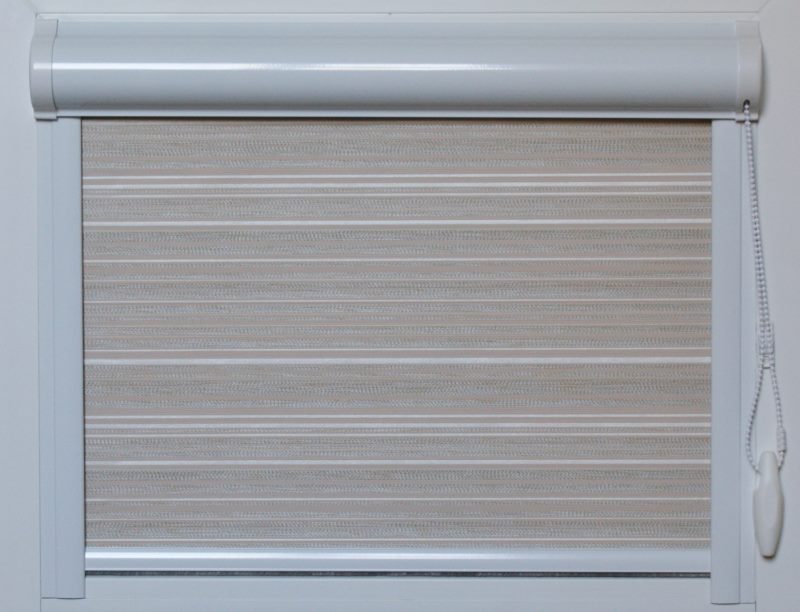
Differences between open and closed roll filters:
- are distinguished by their simpler installation, since only the shaft needs to be secured;
- have side gaps, so they provide less protection from the sun;
- not installed on an opening sash;
- cheapness;
- can be used for non-standard windows.
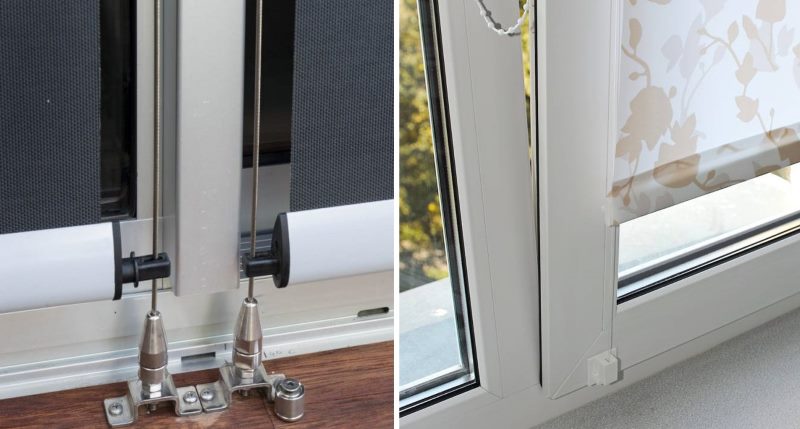
Cassette curtain design is roller blinds with guides. Side guides keep the fabric from sagging, help to direct it strictly along the trajectory and eliminate gaps between the fabric and the window, thus achieving maximum darkening. The cassette device also ensures smooth movement of textiles up and down.
Curtains with spring mechanism
The most popular systems are those with a spring lifting method. Its main advantage is its ease of use – control is carried out in one movement with a handle located on the lower bar.
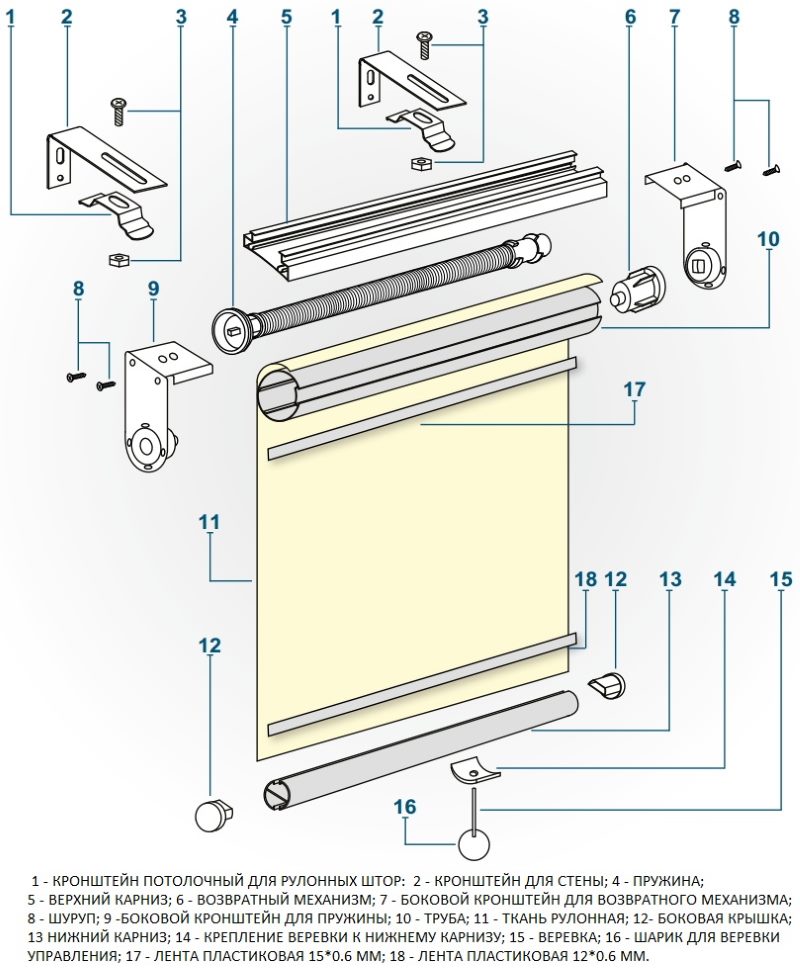
The spring curtain bracket has a built-in spring-inertial mechanism. To set them in motion, you need to pull the cord on the bottom bar down a couple of centimeters, then bring it to the desired level and the canvas will be fixed at this height with a stopper. This is how the open model moves. But the special feature of the closed model is that the structure with a spring mechanism can be installed in any position, so the cassette can be placed not only on top of the sash, but also below or on the side for movement to the left and right.
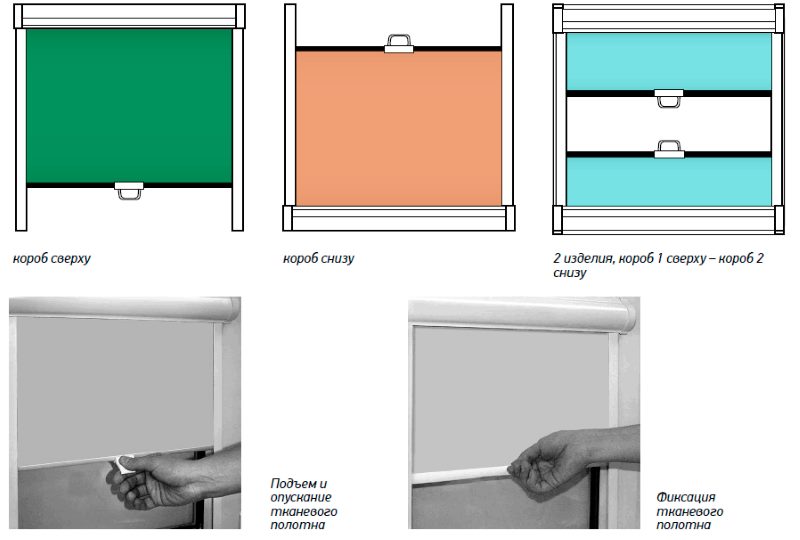
In order to set the lower bar and the fabric in motion, you need to lift it a little and turn the handle on it. After that, the brake will be released in the guides, and the spring, under the action of inertia, will try to compress and twist the fabric into a roll, so the curtain can be moved in the desired direction.
Installation of roller cassette blinds on windows
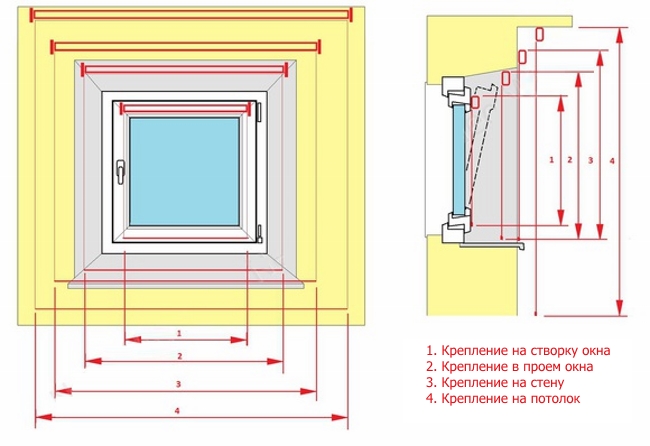
Important! The method of fastening roller blinds must be determined before viewing the catalog and making a purchase and communicated to the measurer, as this will affect the size of the product.
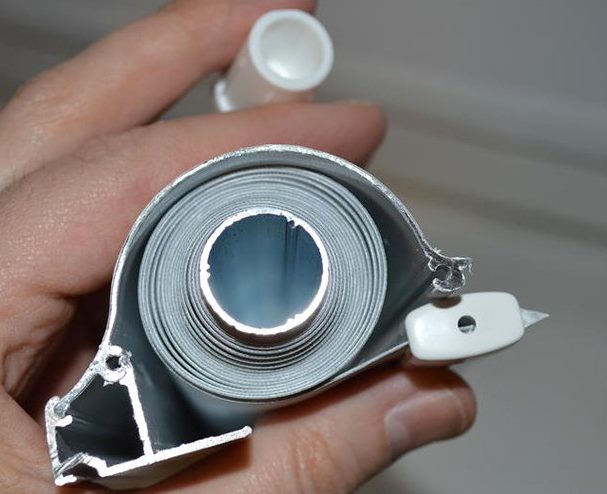
Installing roll-up cassette structures on windows does not require experience or special skills. Such a sun protection system is installed using brackets on screws or with double-sided tape.
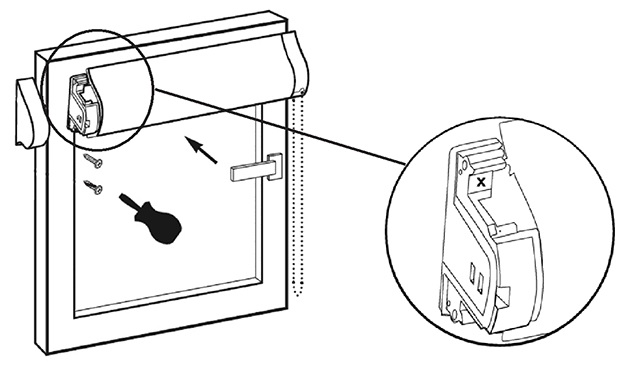
To install open roller blinds on brackets:
- Assemble the roller blind structure and test its operation.
- Make sure that the size of the canvas fits the opening. If necessary, you can shorten the size of the canvas or shaft.
- Place the assembled product against the opening, mark the drilling locations on the surface and drill them.
To mark it, it is necessary to remove the side plugs on the product box. - Secure the brackets with screws and insert the shaft with the blade, pressing the lock until it clicks.
When installing a curtain on a glazing bead, the length of the screw should not exceed the depth of the glazing bead, otherwise the glass unit may be damaged. - Check the operation of the structure by raising and lowering the canvas.
If you do not want to damage the window profile by drilling, use fastening with double-sided tape. This method is not suitable for heavy structures, but is ideal for mini cassettes. They are the easiest to install due to their small size, weight and shaft diameter. They can be fastened either with double-sided tape or with special clamps that are suitable for an opening sash.
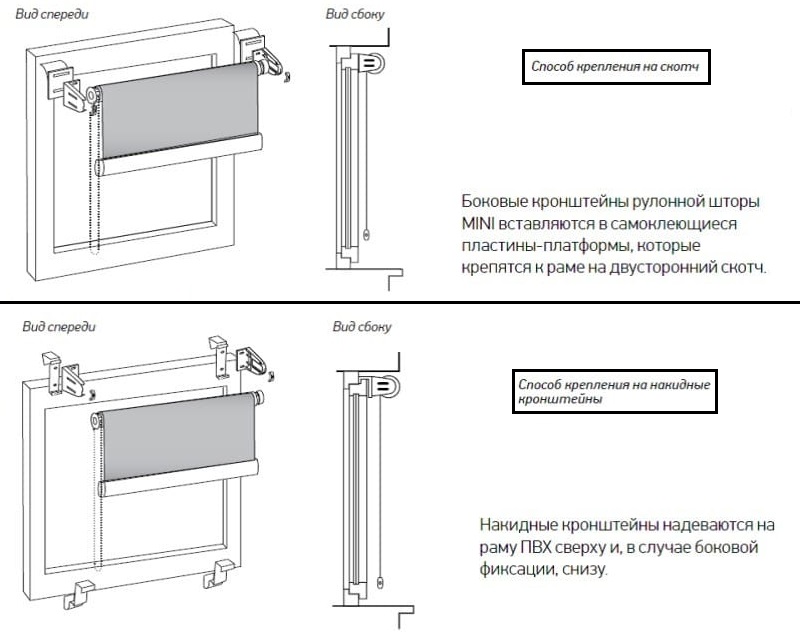
Installing curtains with guides
Closed type blinds have guides that are glued with double-sided tape, so installing cassette roller blinds on plastic windows takes a little longer.
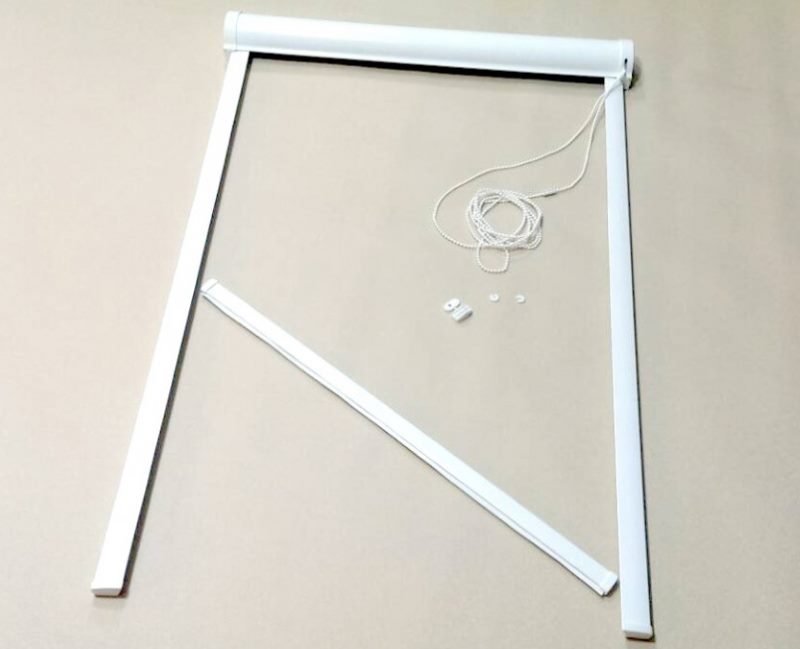
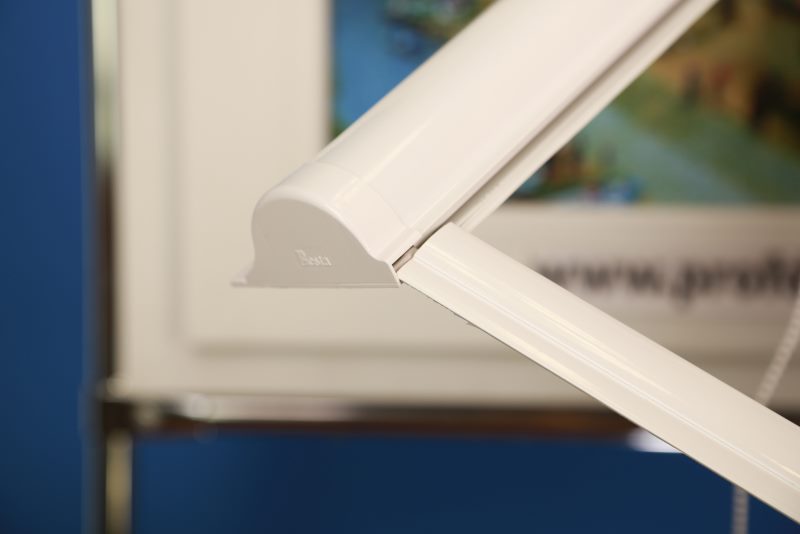
Progress of work:
- Degrease the surface to which the guides and box will be attached by wiping it with alcohol.
- Place marks for the top points of the guides.
Before marking, you need to insert decorative plugs into the guides. - Secure the box with the shaft using 4 screws and brackets in the same way as in the case of an open type design.
The drill diameter is selected based on the thickness of the screw rod. - Glue the side guides to the glazing beads according to the marks you made.
The guides must fit precisely into the grooves on the body. - Check the operation of the structure by raising and lowering the canvas.
Important! When installing, check the level, because if the installation is not secured correctly, the canvas will become skewed and become unusable.
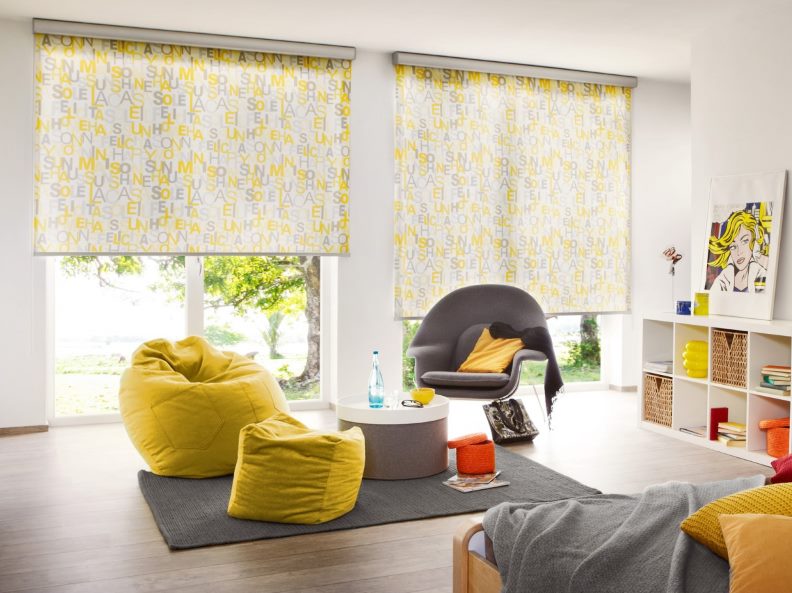
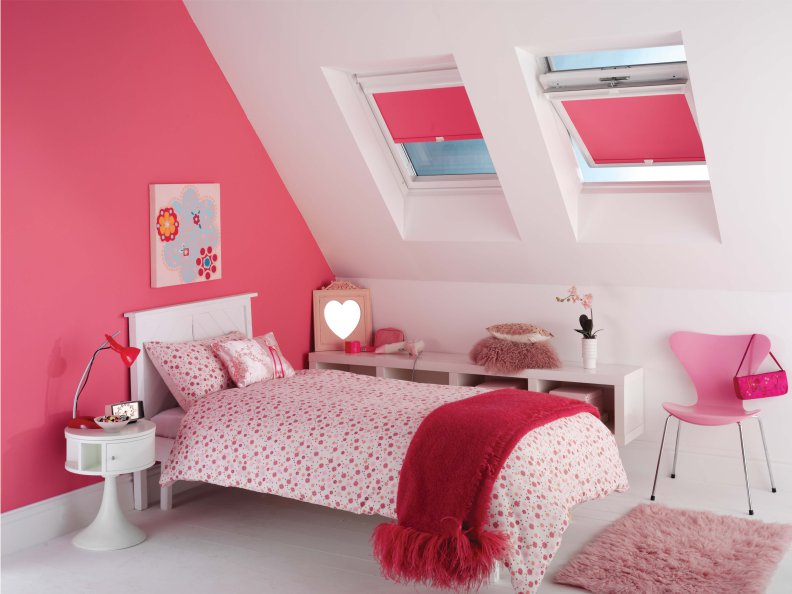
Correctly installed high-quality roller blinds will serve for a long time without fading. They are easy to care for, as the fabric is impregnated with a special composition, which allows you to use them not only in living rooms, but even in the kitchen and balcony, because unlike fabric blinds, such light filters look cozy when lowered and are almost invisible when closed.

